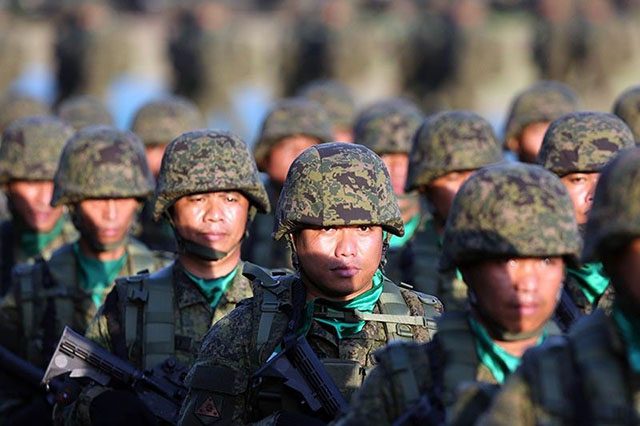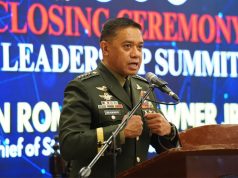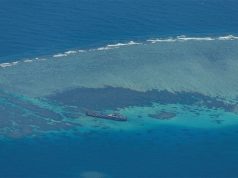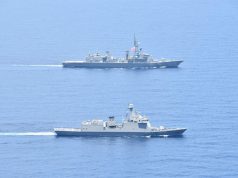The remarks of Philippine Army spokesperson Lt. Col. Ramon Zagala demanding soldiers’ loyalty to the president is seen as a misalignment with oaths and allegiances of the military under law.
In a televised interview last July 10, Zagala said soldiers must remain loyal to President Rodrigo Duterte following the chain of command.
“Your Armed Forces is professional and our loyalty will remain towards the chain of command. He (Duterte) being the commander-in-chief, our loyalty is towards him,” he said.
Zagala added that soldiers who are not loyal to the president should “resign” instead.
“Now if we have soldiers who are not loyal to him, then you resign your position and you can talk all you want,” he said.
His statement came amid speculations of a coup d’état against the president which will supposedly arise from the Armed Forces of the Philippines and the Philippine National Police.
RELATED: AFP, PNP: We won’t mount coup vs Duterte | The many times Duterte floated ouster plots against him
Zagala’s remarks were met with scrutiny online. A few argued that soldiers are mandated to uphold and defend the Philippine Constitution without necessarily pledging allegiance to a single person.
“Serve the country first, not your selfish interest or someone’s interest,” a Facebook user commented.
“Soldiers (should) be loyal to the Constitution, the people, the Philippines, not to one person,” another user said.
“Correction (please)… you are loyal to the Constitution and (to) your country, not to the president,” another user added.
Duterte himself in September last year urged law enforcers not to nurture loyalty to him.
“I don’t need it. I was elected by the people… Your loyalty should begin and end with the Republic of the Philippines. Do not mind me,” he said.
Allegiance to the fundamental law
The 1987 Constitution states that the president is the designated commander-in-chief of the country’s armed forces.
He has the power to call them in order “to prevent or suppress lawless violence, invasion or rebellion.”
The Constitution also decrees that soldiers are supposed to “uphold and defend” it, as well as refrain from engaging in any partisan political activity, be it indirectly or directly.
Article II Section 3 of the law states:
Civilian authority is, at all times, supreme over the military. The Armed Forces of the Philippines is the protector of the people and the State. Its goal is to secure the sovereignty of the State and the integrity of the national territory.
Article XVI Section 5 further details the armed forces’ functions, which include the following:
- All members of the armed forces shall take an oath or affirmation to uphold and defend this Constitution.
- The armed forces shall be insulated from partisan politics. No member of the military shall engage directly or indirectly in any partisan political activity, except to vote.
Furthermore, Executive Order 2 Series of 1943 requires all government officials and members of the armed forces to take an oath of loyalty under the Constitution which they are mandated to uphold, protect and defend while serving the people.
As AFP spokesperson Brig. Gen. Edgard Arevalo said in previous interviews, the soldiers’ loyalty belong to the flag.
“The AFP is the protector of the people and the state. That is our constitutional mandate and we will abide by it,” he said.
“Time and again we assure our countrymen that the AFP shall remain loyal to the flag, to the Constitution and to the Filipino people,” Arevalo continued.










